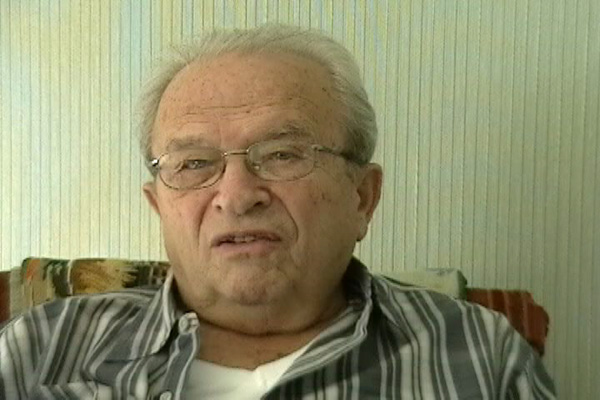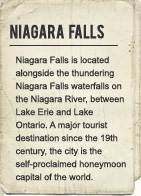Niagara Falls was a border town located at one of the world’s premiere tourist attractions and natural wonders. How was social life for the Jews of Niagara Falls affected by these things? Eddie and Brian Greenspan highlighted the “rough and tough” quality that is characteristic of any border town. Myer Salit’s daughter Frances Meisels went further, confirming that organized crime groups, both Jewish and non-Jewish, were known to be present in town. Despite the apparent dangers, she developed a strategy when coming home late at night, which involved asking some of the more muscular Jewish men to look out for her and accompany her home. “They knew who you were,” she stated, “and to a certain extent, you knew who they were.” Meisels also remembered how fascinated she was as a young girl, seeing all the tourists. Larry Cohen remembered the visit of an Israeli who came to raise funds during the tense period before the 1967 war. By claiming that this man was Israel’s Minister of Tourism, Cohen was able to arrange VIP treatment for him, including a special tour of Niagara Falls.
The closeness of the Niagara Falls Jewish community was expressed both informally, through picnics, pot luck dinners and regular card-playing sessions, and formally, through Jewish community organizations such as the synagogue sisterhood, Hadassah, B’nai Brith, Young Judaea and the Niagara Falls’ Federation. Both formal and informal social relations in Niagara Falls often involved adjacent St. Catharines, as well as the neighbouring towns of Welland and Port Colborne and also Hamilton and Niagara Falls, New York. Groups of Jews from the different towns would get together regularly on Saturday nights. The women would play mah jong while the men played poker or gin rummy. As well, during the 1950s and 1960s an annual group picnic was held in Queenston Heights Park on top of the Niagara escarpment.

Social Life in Niagara Falls
Irving Milchberg reminisces about the informal social events that were a frequent element of life in Niagara Falls.
Interview with Irving Milchberg, 26 July 2007, Sharon Gubbay Helfer. OJA, Oral History #333











